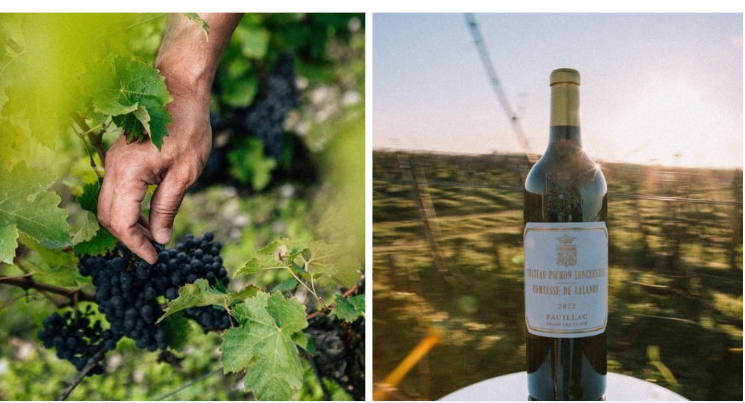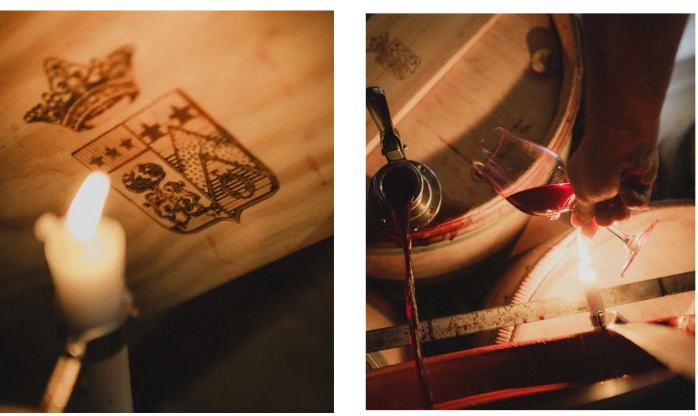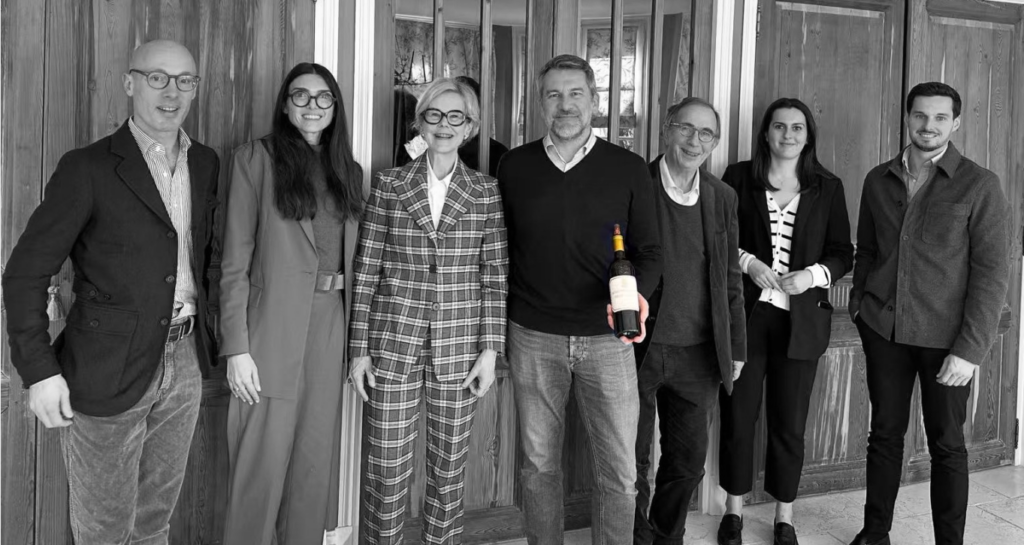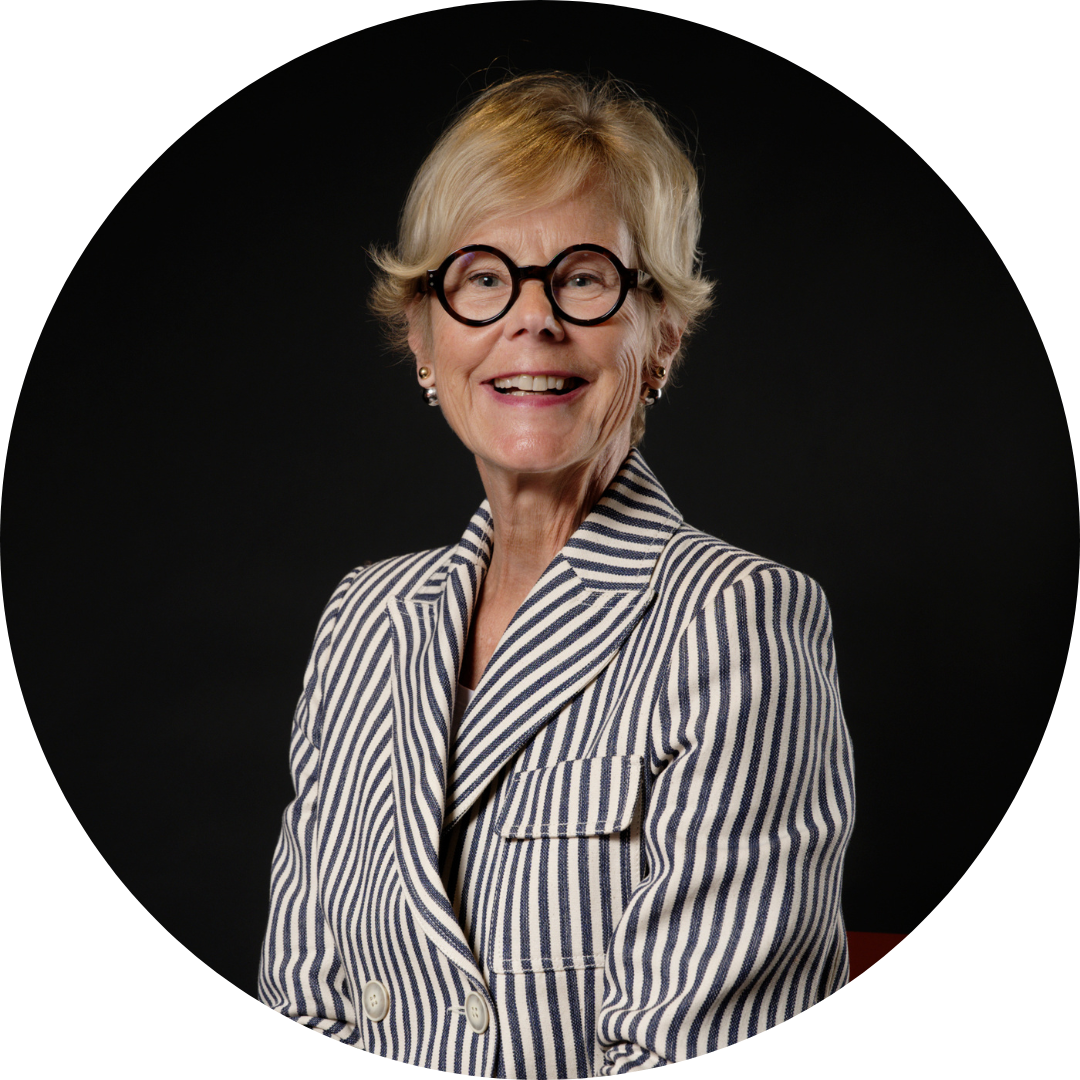🎧We are offering the Inside in an audio file🎧
Reflected Views Part 3
~
Château Pichon Longueville Comtesse de Lalande
~
with Nicolas Glumineau, Bernard Burtschy & Gerda Beziade
FIJEV Wine Talk Wine Paris 2025
Gerda: At Wine Paris, you did a conference on wine communication in the XXIᵉ century. How do you attract the new generation to an exceptional wine like Pichon Comtesse de Lalande?
Bernard Burtschy: That’s a good question. But I’m not worried. You just have to let things happen. I started my career in wine at a time of crisis, and in a way, I see today’s crisis as rather positive, because it allows us to buy back rare bottles that had become almost inaccessible.
G: Even among young people?
BB: Yes. I used to teach a lot at the grandes écoles, as well as being a journalist for Le Figaro. Every time I organised a tasting, I invited my students. These young people went along with an incredible passion and thirst for learning. When I brought together 15 or 20 curious and enthusiastic students, their many questions injected energy into the tasting and revitalised the producer.
I’m not at all worried about this generation. It’s true that rising prices have made these wines inaccessible to them, and Bordeaux hasn’t always done the right thing. But every time I asked a cru classé de 1855 to come and present its wines to these young people, they were impressed by their interest in great wines. We have to keep offering them opportunities to learn. Without training, it’s difficult to know. But Bordeaux, more than other regions, has always been involved in educating this generation. I remember one time I called Jean-Michel Cazes and he said, ‘Of course we’ll help you, your idea is superb.
The problem for young people is that, if they can’t get access to bottles, they sometimes say out of spite that they don’t like it. That’s a real shame. So we have to organise access, because the demand is there, even among them. Bordeaux thought that prices would always go up, but in the end, there always has to be a consumer. Even the richest people can’t eat more than three times a day or buy wine endlessly.
When I analysed the consumer base, I spotted a young, wine-loving public who drink wine twice a week and who also want to learn. For example, the Bordeaux Fête le Vin initiative, which takes place every year, is an excellent way of doing this.
G: And how should we communicate about wine?
BB: There’s no single answer, but rather a multitude of ideas, because the wine public is so varied. First of all, each generation is often built in opposition to the previous one. You don’t listen to your grandparents’ music, so it’s normal for the younger generation to be interested in natural wines or rosé. They need to experience things for themselves. But we also need to pass on the heritage of previous generations.
For a long time, this was done within the family. But today, people aged between 45 and 65 have not played their part enough in this transmission. In fact, they’re the ones who drink the most rosé! So we have a ‘missing link’.
I’ll tell you an anecdote: I prepared a large quantity of beef bourguignon. My 15-year-old daughter ate it that evening, then the next day with her friends. I was delighted, because this generation doesn’t eat much meat in sauce, and what’s more, she shared it with her friends. This idea of sharing is essential, and even more so when it comes to wine. Conviviality is essential. However, since the Evin law came into force, we can no longer emphasise the importance of conviviality when it comes to alcohol. I’ve just written a long article on transmission, but it was blocked by self-censorship. It’s crucial that all wine lovers take part in this transmission. Everyone needs to share great bottles with the new generation. The two key words are: sharing and conviviality.

G: Smartphones have also changed the way wine is communicated, don’t you think?
BB: Yes, and there are many advantages. Everyone can now get information instantly and easily exchange ideas with others. In fact, we carried out an interesting study into the sources of information used by influencers: 85% of them turn to the written press for information.
G: Why have sales become so complicated these days, even for good bottles?
BB: The main reason is the steady rise in prices, which has gradually driven away the loyal consumer, the one who used to buy for pleasure and fill up his cellar every year, as I used to do. It was a well-established tradition, especially in France and Europe. But in recent years, this link has broken down: the estates have concentrated on premiumisation, forgetting about this passionate clientele. As a result, distribution has lost its margins and become poorer. And today, in a declining market, it’s becoming very difficult to find the right price.
G: What do you think of the current market in Bordeaux?
BB: It’s a complicated market. The problem with Bordeaux is that it’s no longer fashionable. And it’s not easy to reverse this trend. Bordeaux has relied too much on its image, saying to itself: ‘We’re the best, we can’t be ignored’, but it still hasn’t understood that it really has to take care of the consumer. Until now, Bordeaux has been lucky enough to attract buyers and journalists from all over the world during the Primeurs, who pay their own accommodation costs. That’s something of a rarity in the wine world. If I let myself do it, I could be invited every 15 days to Italy or Spain. Over there, when you invite professionals, the European Union covers half the costs, something that the French have not yet taken on board.
But not all Bordeaux wines are in crisis. I know some small châteaux in the Entre-Deux-Mers region where the owners travel to all the trade fairs and carefully maintain their customer files. They are not suffering, because their customers order their 24 bottles every year, without exception. These properties are managed independently of the wine trade.
The big question is always the same: ‘Where is the storytelling that consumers need? In the past, the negociants looked after the wines of the smaller appellations, but today most of them have abandoned this volume market to concentrate on their own choices. What’s more, some wines simply don’t hold up, as consumers are more demanding. Bordeaux hasn’t worked hard enough on its end customers; it’s not enough for a wine to be labelled ‘Bordeaux’ to get an outlet. Today, when consumers read one of my articles on my website, they want to know where to buy the wine, and if possible immediately. But this information is often lacking in Bordeaux.
We shouldn’t forget that Bordeaux has already been through some difficult times. In 2008, during the subprime crisis, Bordeaux lost its main market: the United States. Fortunately, the Chinese market came along and helped turn things around. In the past, the whole world came to Bordeaux to buy wine, but the owners didn’t know how to position themselves sufficiently on the market. By concentrating too much on their desirability and wanting to become luxury products, they neglected their customers. Today, I don’t see a market that can save Bordeaux wines. In my opinion, Bordeaux has focused too much on distribution, and not enough on the actual marketing of its wines. Many estates have not yet understood this.

G: That’s partly in the past, because nowadays, the Châteaux are well equipped to promote their wines all over the world.
BB: Yes, and it’s becoming increasingly urgent. We’ve fallen a long way behind, while other regions have taken our place. Bordeaux was content to distribute wines that were already in demand, with negociants always offering the same references and fighting over price. But the real global battle is now being fought over distribution channels: wine has to be in the right place at the right price. La Place de Bordeaux is based on a nineteenth-century system of distribution, but we are in the twenty-first century, in a market of conquest.
G: Does this mean that La Place de Bordeaux no longer has a future?
BB: Yes, but it needs to reinvent itself completely.
G: How?
BB: My wife was a strategy consultant in the United States for fifteen years. She recalls that in the early 2000s, there were multi-brand shops where the notary’s wife went to buy her Dior bag and her Chanel trousers. Today, the big brands have set up their own distribution channels and control everything. In Bordeaux, the wines sold by La Place do not control their distribution.
G: But they know it better and better: we share our sales statistics, put them in touch with our importers/distributors and organise visits, lunches and dinners so that their customers know the wines even better.
BB: Yes, but it’s only partial. They don’t know exactly where their wines are. La Place focuses on a price war instead of working on the quality of distribution. As my wife says: ‘When you talk about the price, you stop looking at the product’. Every negociant should specialise in one distribution channel with no direct competitors.
G: Today, there are a number of negociants, but each one has its own specificity. In your vision, there will only be a few left?
BB: Yes, that’s inevitable. There’s no logic in having five négociants selling the same wine in Austria, for example. They end up competing with each other purely on price, and as soon as that happens, the value of the product is lost.
G: As negociants, we also offer a service that encourages our customers to work with several of us?
BB: Yes, but La Place needs to reorganise. We’re in a combat market where we have to win over consumers by telling them a story. Wine needs to be embodied, and that can be done through a négociant. Consumers need to know who’s behind the bottle.
G: I couldn’t agree more. This has been a major change in my career. The châteaux need to know how their wines are distributed, and today we are increasingly transparent with them on this point.
BB: Yes, but you have to understand that consumers hate this system. That’s where the Bordeaux bashing comes from. That’s at the heart of the current problem.
G: And yet we’re seeing interest from the market in wines from outside Bordeaux that are arriving at La Place.
BB: Yes, but these wines come looking for global representation, without having much to sell.
G: All the same, it proves the strength of our system.
BB: These estates have often used La Place to launch a new wine, whereas their other wines are sold via club systems, as exists in Napa. They need Bordeaux to raise their profile. La Place de Bordeaux is used to selling expensive wines. It is not interested in the others, because the margins are too low, and these properties have no interest in going through the wine trade. La Place can’t create a brand, it’s up to the estate to do that.
G: So what’s your conclusion?
BB: Bordeaux needs to invent itself, not just reinvent itself. The estates need to restrict the number of négociants they work with, so that everyone can make a living from their wine, because Bordeaux wines have never been so wonderful!
You can find Bernard Burtschy’s notes on the 2024 vintage on this link.
Gerda BEZIADE has an incredible passion for wine, and possesses a perfect knowledge of Bordeaux acquired within prestigious wine merchants for 25 years. Gerda joins Roland Coiffe & Associés in order to bring you, through “Inside La PLACE” more information about the estate we sell.


